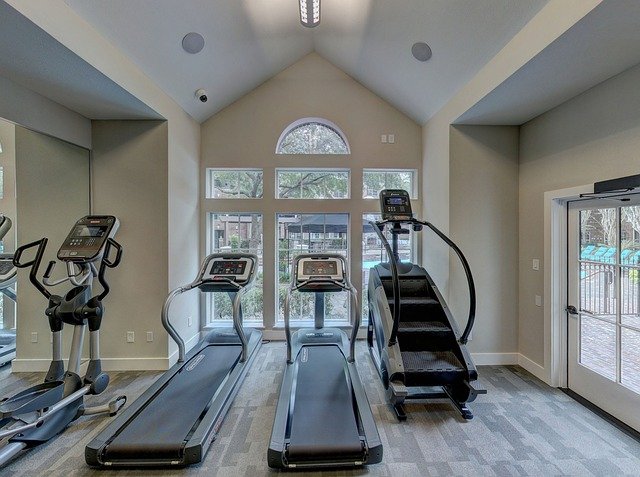If you’re feeling the pressure of burnout looming over the horizon, you’re not alone. Many people are troubled in a similar manner these days, and it looks like the numbers are climbing on a regular basis. This can be attributed to various factors, but investigating the root cause is beyond the scope of this article. Instead, we’re going to look at the opportunities available to those who want to switch careers. More specifically, those interested in contributing to healthcare.
You might be surprised to learn this, but having spent a decade or two in an unrelated field is not an impassable barrier for working in healthcare. In fact, depending on the exact kind of work you were doing, you might be able to leverage your experience.
The Popularity of Healthcare Jobs Is Rising
In the last few years, we’ve started to see a surge of attention towards healthcare, with many people showing an active interest in joining the field or at least contributing in some way through their own resources. There’s no doubt that the pandemic played a major role in this. But there are other factors in the picture as well, and it’s important to have an objective overview of the current state of affairs.
For the most part though, many hospitals, clinics and laboratories are now hiring more actively than ever before. The baseline requirements for some of those positions are sometimes well within the range of someone who has never even worked in healthcare. If you want to help out and make a difference, you should start by looking around and checking who might be hiring.
People Are Waking Up to the Current Shortage
Many people have started to realize this, too. The impact of the current shortage can be felt on all levels of healthcare – from upper management to the physicians and other specialists providing the treatment, down to each individual patient. It’s clear that we need more hands-on deck, and it’s a good thing to see so many people opening their eyes to this realization.
Whether the shortage is going to last for a prolonged period is hard to tell. Yes, it’s entirely possible that the healthcare job market is going to stabilize in the next few years. But current prospects certainly don’t point in that direction, and there are many reasons to believe that demand is actually going to keep climbing, at least for some time.
Degree Options Are More Flexible Than Ever
You also don’t have to commit to several years of grueling in-person classes if you don’t feel like it – there are alternative options available nowadays. This is valid even if you don’t intend on pursuing the career path of a physician specifically. Baylor University’s online ASBN program is a good example of something that can give you a good head start and prepare you for the job market.
You’re still going to benefit from personal presence in some ways, so you should make it a point to explore your potential connections as much as possible. But when it comes to the base education itself, it’s important to understand your full range of options. Don’t just commit to the same path that everyone before you has walked because it’s safe. With all the new options we’ve seen in the last few years, it’s a good idea to take a step back and evaluate the current situation from a broad perspective before starting your studies.
Skills from Some Fields Are Immediately Useful in Healthcare
As we mentioned above, those coming in from certain fields can benefit from a head start in the world of healthcare. This extends to various areas – technology, finances, management, support, and more. It’s important to look at your resume from a different perspective, and think about all the ways you can link your previous positions to current trends in healthcare.
It may be helpful to take additional training to bridge some specific gaps in this area, especially in cases like someone with a heavy technical background entering the field without any prior knowledge of biology. Even though you might never actually have to solve problems requiring medical knowledge, it can still be useful to have some more context about the work you’re doing, and how it fits into the grand scheme of things.
Don’t Be Quick to Relocate
An annoying part of searching for work in healthcare is that many employers are looking for people willing to relocate, either immediately or in the short term. This is especially prominent with positions that don’t require a lot of specialization and, as a result, candidates for them end up facing a lot more competition.
Don’t be quick to accept those terms though. Relocating can definitely boost your prospects on the job market, but it should be a last resort. Consult someone in your area with specific experience with your local job market, and see if you might be missing something. Often, there are more opportunities than you might assume – you just don’t know how to seek them out.
Remember That You’ll Face a Lot of Heavy Work
No matter what path you take, remember one thing: it’s not going to be easy. Even if you bring a lot of relevant experience with you, you’ll still have a lot of additional learning to do. Don’t expect too much support from your colleagues once you’re out of school either. They’ll be just as busy as you, and if you can’t pull your own weight, this is going to make you stand out very quickly. But if you’re prepared to face that challenge and have the right kind of attitude, definitely check out the current opportunities in healthcare – they are not few.
Try to keep your options open initially too. Unless you’re absolutely sure that a specific field is right for you, don’t commit to it 100% until you’ve gained some experience about how things really work behind the scenes. And don’t be ashamed if you have to turn back and try another route. It’s a much better option than telling yourself that you’ll just grind through it, only to realize twenty years later that you’ve made a mistake.
Appeio is a tech enthusiast and gamer who loves to write about the latest news and trends in the industry. He has been writing for over 5 years and has published articles on a variety of websites, including TechCrunch, IGN, and GameSpot. He is passionate about sharing his knowledge with others and helping them stay up-to-date on the latest tech news. In his spare time, he enjoys playing video games, watching movies, and spending time with his family.














